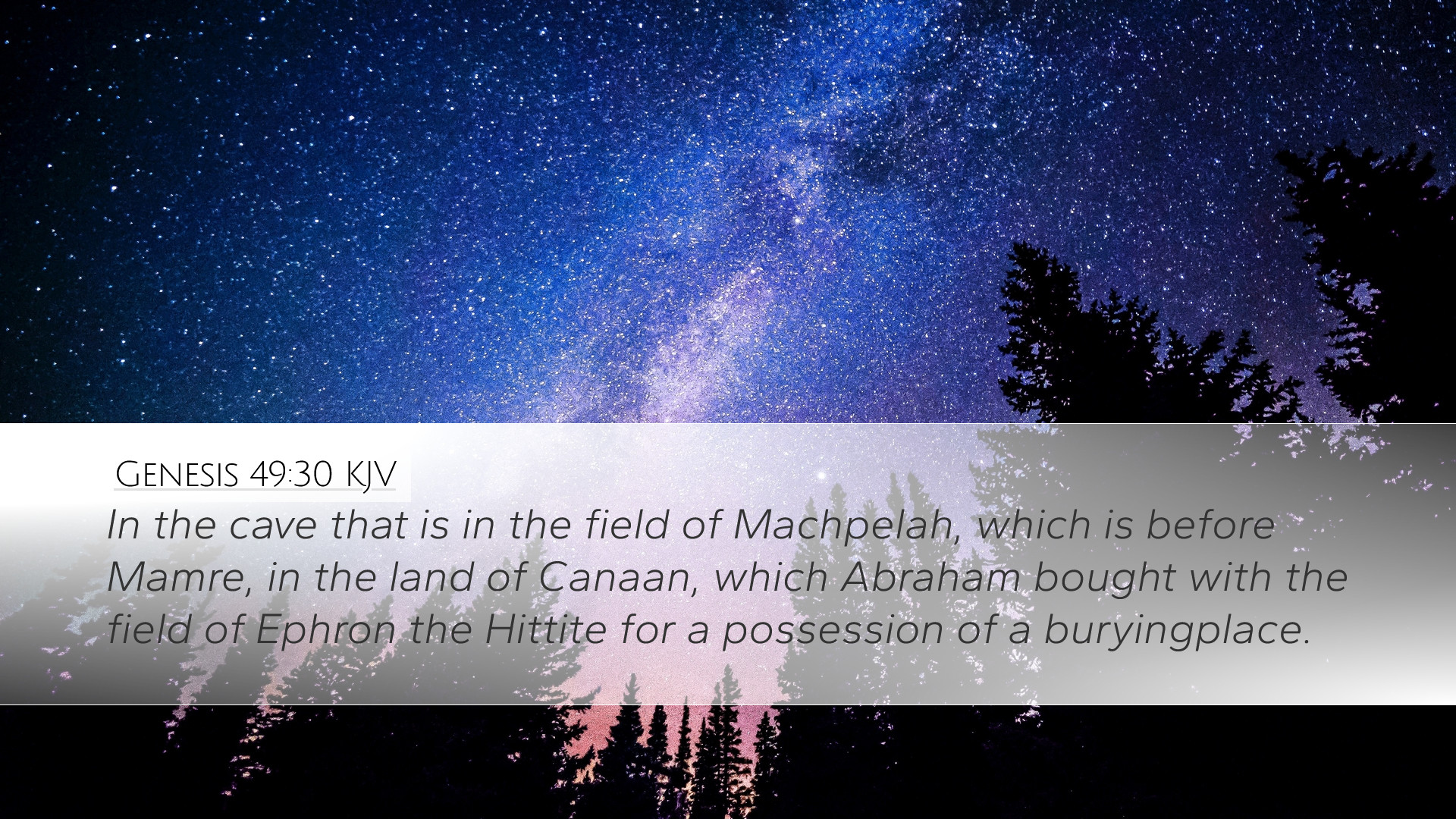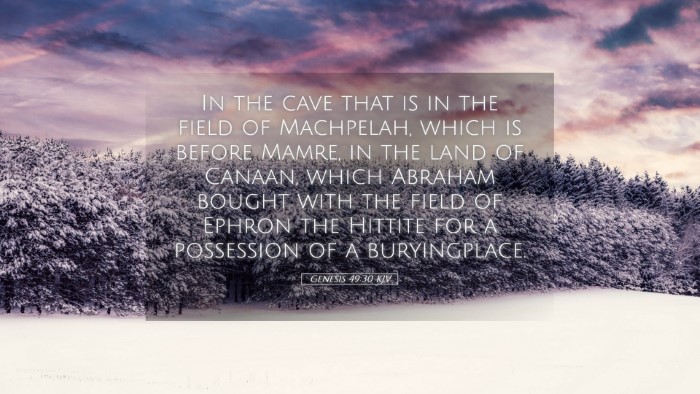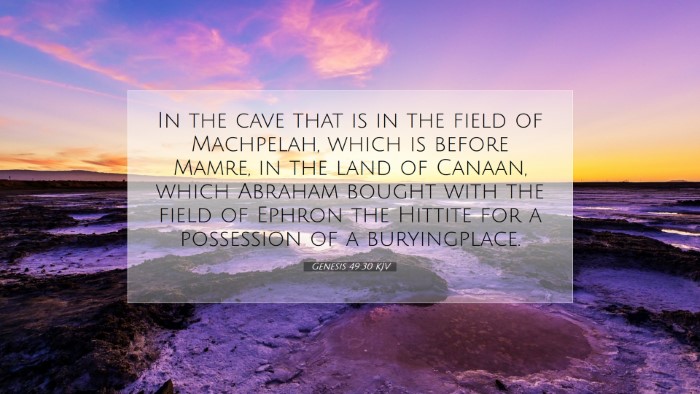Commentary on Genesis 49:30
Verse: "In the cave that is in the field of Machpelah, which is before Mamre, in the land of Canaan, which Abraham bought with the field of Ephron the Hittite for a possession of a buryingplace."
Introduction
This verse recounts Jacob's final instructions regarding his burial place. It is pivotal in understanding the significance of land, family heritage, and the theological implications of burial in the context of God's promises to the patriarchs. As we delve into public domain commentaries, we will explore the relationship between this verse and the overarching themes of Genesis, including covenant, promise, and the significance of physical locations in God's plan.
Contextual Background
Genesis 49 provides an account of Jacob's blessings upon his sons, culminating in this verse about his burial wishes. It emphasizes the importance of the land of Canaan, which is central to the Israelites' identity and promise from God.
Insights from Commentators
Matthew Henry's Commentary
Matthew Henry indicates that Jacob's mention of Machpelah reflects both a personal and communal significance. He emphasizes that the cave was purchased, thus providing a rightful claim to the land, underscoring the importance of property ownership in relation to God's promises. Henry expresses that Jacob's desire to be buried in Canaan indicates his faith in God's promise that this land would belong to his descendants.
Albert Barnes' Notes
Albert Barnes elaborates on the details of the location, identifying Machpelah as a well-known burial site of the patriarchs. He notes that Jacob's burial in the land signifies the transition of the covenant from the patriarch to the next generation. Barnes highlights the theological weight of burial in Canaan, as it reinforces the promise of land as part of the covenant, echoing the central theme of God's faithfulness to His chosen people.
Adam Clarke's Commentary
Adam Clarke discusses the significance of the transaction involving the field of Ephron the Hittite. He points out that the acquisition of this specific burial place underscores the legitimacy of Jacob’s desire to be interred among his ancestors. Clarke also reflects on the historical context, noting how this cave became a familial and sacred ground for the patriarchs, representing a tangible link to God’s promises.
Theological Significance
The request for burial in Canaan serves several theological functions:
- Affirmation of Covenant: Jacob’s burial place symbolizes the affirmation of God’s covenant with Abraham and his descendants. The land purchase becomes a physical manifestation of God's promise.
- Identity and Heritage: The burial in Canaan ties the identity of Israel to the land, echoing themes of belonging and heritage. It reinforces the notion that the people of Israel are divinely chosen and anchored in a specific geographical location.
- Eschatological Implications: This verse foreshadows future hope and resurrection, as the graves of the patriarchs become representative of the promises of God for all believers, suggesting an ultimate restoration of God's people in their promised land.
Practical Applications
For pastors, students, theologians, and Bible scholars, Genesis 49:30 offers vital insights into understanding the broader themes of ownership, belonging, and God's promises:
- Land as Identity: The importance of land in Scripture reminds the church today of its spiritual roots and identity anchored in God’s promises.
- Significance of Burials: This passage encourages reflection on the significance of death and burial, emphasizing respect for the physical remains as they relate to the divine narrative.
- Assurance of God’s Promises: The focus on Canaan reassures believers of God's faithfulness, encouraging them to hold on to His promises even in times of uncertainty.
Conclusion
Genesis 49:30 encapsulates a pivotal moment as Jacob affirms the legacy of his family within the context of God’s promises. Through insights from prominent commentators, we glean deeper understanding of the theological implications concerning burial, land ownership, and identity among God’s people. This verse calls scholars and pastors alike to recognize and teach about the intertwined nature of faith, promise, and the physical world in the unfolding story of redemption.


